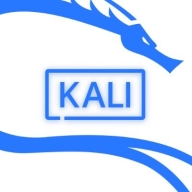

Oracle Linux focuses on enterprise environments while Kali Linux targets cybersecurity professionals. Oracle Linux has the upper hand in stability and enterprise support, whereas Kali Linux excels in specialized security tools.
Features: Oracle Linux users value its compatibility with enterprise applications, robust support infrastructure, and stability. Kali Linux users focus on its extensive suite of penetration testing tools, pre-configured security environments, and specialized security utilities.
Room for Improvement: Oracle Linux needs better desktop performance, more frequent updates, and improved user experience on desktops. Kali Linux requires user-friendly documentation, a more intuitive interface, and streamlined tools for novices.
Ease of Deployment and Customer Service: Oracle Linux is straightforward to deploy in enterprise settings with strong professional support. Kali Linux deployment is simple but requires cybersecurity expertise, and support is community-driven.
Pricing and ROI: Oracle Linux has enterprise licensing costs and provides ROI through long-term stability and support. Kali Linux is open-source with no setup costs, offering high ROI for cybersecurity tasks.


Kali Linux is widely used by organizations for penetration testing, vulnerability assessments, web application security, network audits, ethical hacking, and open-source intelligence, providing extensive free features.
Organizations run Kali Linux in virtualized environments alongside other operating systems, employing tools for automated scans, malware identification, infrastructure testing, and application development or hosting. These users benefit from lower maintenance requirements and a smaller footprint. The toolset includes Nmap, SQLMap, Metasploit, and Hydra, ensuring effective security assessments. Its high scalability, performance, user-friendly interface, and extensive documentation enhance the platform's usability. Known for stability, flexibility, and virus resistance, Kali Linux supports web security, troubleshooting, and configuration tasks comprehensively.
What are the most important features of Kali Linux?Kali Linux can support industries in improving security through stable and flexible environments that resist viruses and provide extensive documentation. Users employ it for web security, troubleshooting, and configuring capabilities. Necessary improvements include automation, user-friendliness, and integrating AI and blockchain. Enhancements in security features, faster installations, and better learning tools are also essential. Machine learning integration and non-enterprise user functionalities can address current limitations.
Oracle Linux is a stable, reliable, and scalable operating system primarily used for deploying and running Oracle databases. It is also suitable for various other functions, including managing operating systems and web servers, supporting traffic surveillance, and identity management.
Oracle Linux is highly valued for its stability, reliability, scalability, good technical support, and ease of use. It has helped organizations to achieve faster DNS queries, stable development environments, reduced vulnerability issues, good performance for Oracle applications, and improved ability to run test scenarios and parallel queries across massive databases.
Oracle Linux Features
Oracle Linux has many valuable key features. Some of the most useful ones include:
Oracle Linux Benefits
There are many benefits to implementing Oracle Linux. Some of the biggest advantages the solution offers include:
Reviews from Real Users
Oracle Linux stands out among its competitors for a number of reasons. Two major ones are its stability and scalability. PeerSpot users take note of the advantages of these features in their reviews:
One PeerSpot reviewer, an IT Manager, reports, “I find the virtualization the most valuable.” He adds, “Oracle Linux is the best Linux operating system that I have ever known. It is very stable and strong.”
An Enterprise Architect at a financial services firm writes of the solution, “You also don't have memory issues, especially when it is engineered with platforms like Exadata and Oracle Cluster. These give you the most throughput and performance.” He adds, “It is very scalable, especially on platforms like Oracle Cluster and Exadata.”
We monitor all Operating Systems (OS) for Business reviews to prevent fraudulent reviews and keep review quality high. We do not post reviews by company employees or direct competitors. We validate each review for authenticity via cross-reference with LinkedIn, and personal follow-up with the reviewer when necessary.